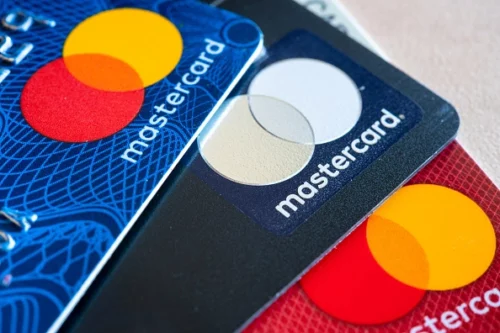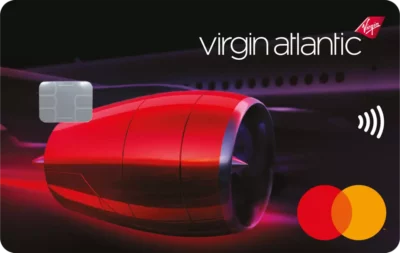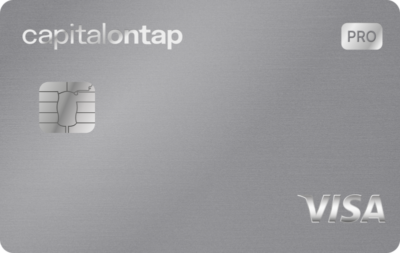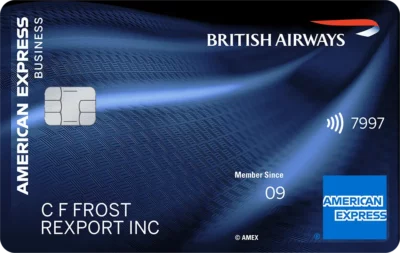The real facts about credit card interchange fee capping
Links on Head for Points may support the site by paying a commission. See here for all partner links.
UPDATE – JULY 2025: This is an old article, and the credit card information given is likely to be out of date.
To learn about current credit card bonuses, benefits, terms and interest rate information, take a look at our directory of the top UK travel credit card offers – please click HERE or use the ‘Credit Cards’ menu above. Thank you.
Keep up to date with new UK credit card bonuses by signing up for our free daily or weekly newsletters.
A couple of articles appeared in the UK press over the weekend linked to the decision by Capital One to scrap, completely, the rewards on its cashback cards. The Daily Mail one is here. This has led to a number of emails from readers asking what the impact will be on their reward cards.
The honest answer is that I don’t know. Industry analyst Andrew Seftel wrote a guest article for Head for Points back in July 2013 outlining the discussions that were going on.
The reaction of the card companies in recent months since a final decision was made by the EU implies that the world is not going to end. Most of what you have read on this topic has been confused because it fails to understand what is actually changing and what is not.

Here are the key facts:
- The EU is capping the interchange fee (explained below) on credit card transactions at 0.3%. This is the % of the purchase which the card issuer keeps.
- Debit card transactions are capped at 0.2%
- Only Visa and Mastercard are impacted
- American Express is NOT impacted directly. Additionally – and this is important for our niche – Amex cards issued by MBNA, Lloyds and Barclays are not impacted until 2019.
- The exact implementation date will not be known until the regulations are formally approved by the EU Council in the Summer.
The interchange fee is NOT the fee that most shopkeepers pay when they accept a credit card. That fee is set by the bank they work with and includes terminal rental and various other services, plus an amount to recoup the interchange fee. There is no obligation for banks to reduce the fees charged to shops at all.
It is worth noting that the new rate of 0.3% compares with a rate of 1.77% charged in the USA. The current UK interchange rate is around 0.8%.
To understand the impact of a substantial cap on interchange fees, you need to understand how the industry works. A credit card issuer such as MBNA has a number of revenue streams, primarily:
- Interchange fees
- Annual card fees
- Interest payments
- Fees for late payment (£12 cap)
- Foreign transaction fees
Against this, you have:
- Customer acquisition costs
- Funding costs (shops are paid immediately, you pay your bill 4-6 weeks later – the card issuer has to borrow money to fund its working capital)
- Servicing costs (call centres, posting statements, processing payments)
- Bad debt costs
- Fraud costs
- Cost of providing rewards
- ‘Section 75’ recharges from bankrupt retailers
On the face of it, capping interchange fees at 0.3% on credit cards is nonsensical. For a start, the card company is giving you up to 55 days free credit. You won’t find many people willing to lend you money for 55 days for a 0.3% return. Even the cost of posting you a statement (say £1) becomes uneconomical unless you have spent £333 that month.
The argument for reducing interchange fees (apart from oligopolistic ones) is primarily that rich credit card users are being subsidised by poorer customers who pay cash. This idea seems to fail on various levels:
- retailers pay bank fees to deposit cash, which is why cashback is so popular in supermarkets
- retailers incur other costs to handle cash, eg sending staff out to the bank
- credit card customers are known to spend more than cash customers because of the psychological impact of not having to hand over real cash (as well as the convenience factor of being able to make a payment if they do not have money on them)
- accepting credit cards is not actually a legal requirement
Australia has had a cap on interchange fees for a number of years of 0.5%. Anecdotal evidence is that this reduced the number of reward credit cards in circulation, increased the average credit card annual fee and increased interest rates.
The EU cap is substantial lower than that, at 0.3%. When interest rates increase, card companies will not be able to even fund the 55 days of free credit at 0.3%.
Reward credit card have another problem. Their users are generally professionals who clear their balance every month. With no interest fees and no late payment fees, the only attraction of reward cards to card companies is that their holders charge substantially more than average per month.
Customers like us (who don’t pay interest) are NOT the core customer of the credit card industry because we do not pay interest – and that is where the big money is made. However, we are incremental business and – with the back office infrastructure in place – it always made sense to chase this sort of customer as well. This may no longer be the case.
What is the way forward?
I don’t know, which is why I avoided writing about this topic before now. Pointless speculation doesn’t benefit anyone and I wanted to see how the card companies reacted. Any of the following could happen:
- Interest free periods to be reduced or potentially ended entirely
- Credit card annual fees to become the norm rather than the exception
- Cards to require a minimum monthly expenditure or to face a monthly fee (say, £5 fee if you don’t spend £1,000)
- Drops in mileage earning rates
- Pressure on Government to see Section 75 protection scrapped – you can’t seriously expect a credit card company to pay you if a retailer goes bust if they are only getting 0.3% on the sale
- Accounts closed – or a monthly fee added – if customers refuse to accept online statements instead of paper statements
- Customers with good credit histories to find it harder to be accepted for free credit cards, as they will generate no fee or interest income
- Reductions in sign-up bonuses
- Foreign exchange fees to be increased
- Airlines forced to accept lower payments for miles
- Card benefits to focus more on additional features such as awarding status or 2-4-1 redemption vouchers rather than mileage. You may see a move to more ‘statement credit offers’ as offered by Amex as these are funded externally by the merchants.
What does this mean for you?
You should bear the following in mind when considering what to do next with your credit card portfolio:
Existing card reward schemes will be unaffected in the short-term, but at some point the issuer will start losing money on every purchase you make and will consider devaluing ongoing earnings. Capital One has already done this.
Think carefully about closing generous non-Amex card accounts – you probably won’t be able to open anything as generous next year
Diversification is probably a sensible strategy. Not every issuer will be as reliant on interchange margins to sustain their business model. Some will be slower (by years) to take rewards from existing customers even if they close the door to new clients, especially if they have already committed to spending £x million on miles.
Third-party Amex cards (e.g. issued by MBNA) have a three-year stay of execution from the EU, so shouldn’t change too much. Eventually these cards will be as unattractive to issuers as Mastercard or Visa but for now they will continue to be profitable.
Amex-issued cards are not subject to any caps. Despite this, I would still expect their rewards programmes to become less generous over a five year period. The obvious reason is that they will have to cut the fees they charge merchants to remain competitive against Mastercard or Visa. The less obvious reason is that they will have less competition so won’t need to try as hard.
Small business cards are not included in these new rules. Cards targeted at small businesses may be an option for the self-employed. Whilst Amex currently dominates this market, we might see Visa and Mastercard providers taking a renewed interest. They may even have very lax requirements for what they call a ‘business’ – perhaps a bit of eBay selling would count ….
The three-year ‘stay of execution’ on Amex cards issued by MBNA, Lloyds and Barclays explains why the card companies are still chasing your business. For example, MBNA has just launched a 25,000 mile sign-up bonus for the free Etihad credit card. This is the best sign-up bonus on a free credit card for over two years.
It does not explain why Barclaycard made a big push recently to relaunch the IHG credit cards, which only come as a Visa. Barclaycard does have an Amex licence, however, and I expect these cards to become an Amex / Visa double-pack.
The shape of things to come ….
The Lloyds Avios Rewards Amex and Mastercard package seems to be to be the ideal model for an airline or hotel credit card for 2016-2019 until the cap on Amex fees on non Amex-issued cards kicks in:
- The cards have an annual fee
- The cards have a good earning rate on the American Express
- The cards have a terrible earning rate on the Mastercard – so poor that you would be crazy to use it given a choice
- The interest rate is relatively high if you do not clear your balance
This is the way forward, I think, whether we like it or not.
Industry analyst Andrew Seftel – @andrewseftel – generously helped me with this article. Andrew has also offered to help answer any questions that you post below. All views are his own.
PS. If you are not a regular Head for Points visitor, why not sign up for our FREE weekly or daily newsletters? They are full of the latest Avios, airline, hotel and credit card points news and will help you travel better. To join our 70,000 free subscribers, click the button below or visit this page of the site to find out more. Thank you.

Want to earn more points from credit cards? – July 2025 update
If you are looking to apply for a new credit card, here are our top recommendations based on the current sign-up bonuses.
In 2022, Barclaycard launched two exciting new Barclaycard Avios Mastercard cards with a bonus of up to 25,000 Avios. You can apply here.
You qualify for the bonus on these cards even if you have a British Airways American Express card:

Barclaycard Avios Plus Mastercard
Get 25,000 Avios for signing up and an upgrade voucher at £10,000 Read our full review

Barclaycard Avios Mastercard
Get 5,000 Avios for signing up and an upgrade voucher at £20,000 Read our full review
You can see our full directory of all UK cards which earn airline or hotel points here. Here are the best of the other deals currently available.
SPECIAL OFFER: Until 15th July 2025, the sign-up bonus on the Marriott Bonvoy American Express Card is TRIPLED to 60,000 Marriott Bonvoy points. This would convert into 25,000 Avios or into 40 other airline schemes. It would also get you at least £300 of Marriott hotel stays based on our 0.5p per point low-end valuation. Other T&C apply and remain unchanged. Click here for our full card review and click here to apply.
SPECIAL OFFER: Until 14th August 2025, the sign-up bonus on the Hilton Honors Plus debit card is TRIPLED to 30,000 Hilton Honors points. You will also receive Gold Elite status in Hilton Honors for as long as you hold the card. Click here for our full card review and click here to apply.

American Express Preferred Rewards Gold Credit Card
Your best beginner’s card – 20,000 points, FREE for a year & four airport lounge passes Read our full review

British Airways American Express Premium Plus Card
30,000 Avios and the famous annual Companion Voucher voucher Read our full review

The Platinum Card from American Express
50,000 bonus points and great travel benefits – for a large fee Read our full review

Virgin Atlantic Reward+ Mastercard
18,000 bonus points and 1.5 points for every £1 you spend Read our full review
Earning miles and points from small business cards
If you are a sole trader or run a small company, you may also want to check out these offers:

The American Express Business Platinum Card
50,000 points when you sign-up and an annual £200 Amex Travel credit Read our full review

The American Express Business Gold Card
20,000 points sign-up bonus and FREE for a year Read our full review

Capital on Tap Pro Visa
10,500 points (=10,500 Avios) plus good benefits Read our full review

Capital on Tap Visa
NO annual fee, NO FX fees and points worth 0.8 Avios per £1 Read our full review

British Airways American Express Accelerating Business Card
30,000 Avios sign-up bonus – plus annual bonuses of up to 30,000 Avios Read our full review



 Rob
Rob 





Comments (43)